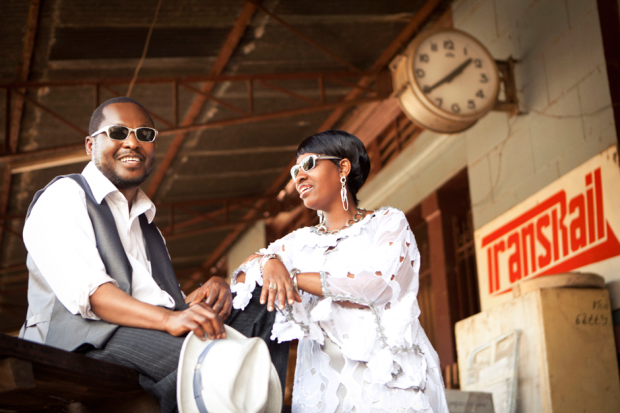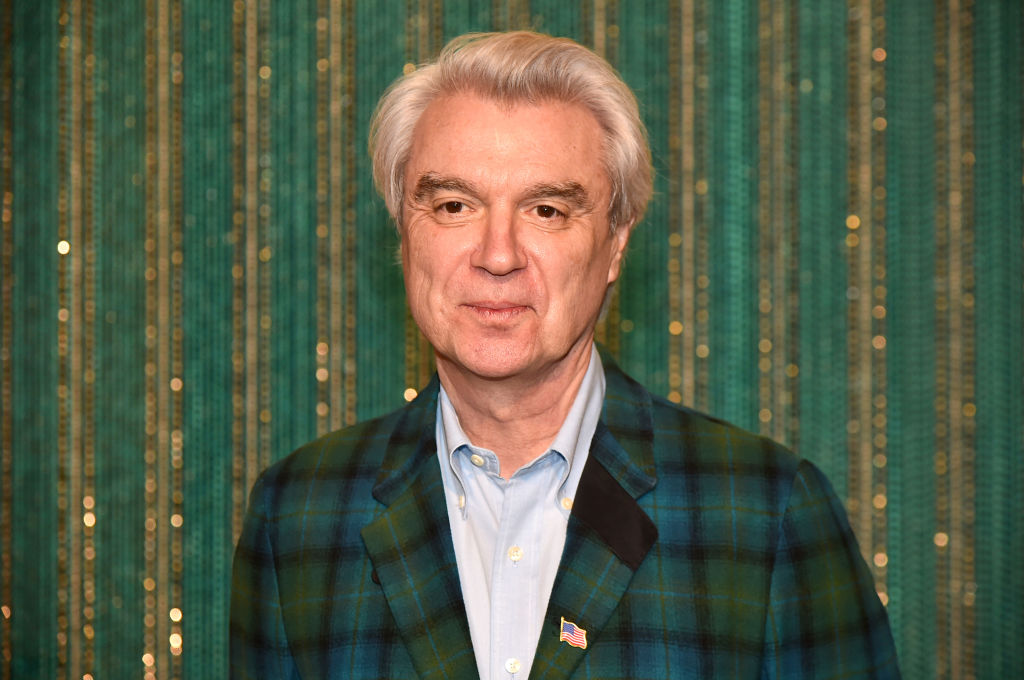Release Date: March 29, 2012
Label: Nonesuch
For all we know, there’s a guitarist on every Bamako street corner who can outplay Amadou Bagayoko. Over the past decade, caravan-loads of superior shredders, trained by Hendrix and Qaddafi, have emerged from the Sahara and Sahel to expand our notion of African desert blues. Likewise, plenty of robust Wassalou divas handily out-belt Mariam Doumbia, a flickering candle up against the full-blast supernova that is Malian soul queen Oumou Sangare; vocally, Amadou hasn’t exactly got Salif Keita’s pipes himself. The self-dubbed “blind couple of Mali” can sing and play, but neither their technical proficiency nor their natural talent dazzles enough to have alone catapulted this husband-and-wife duo past multitudes of striving West Africans hungry for international success.
Amadou & Mariam’s virtues are simpler and subtler: charm, warmth, versatility, and ears open to the nuance of international musical styles. The duo long ago pared down Malian music to a travel kit of key elements — rising and falling melodic chants, unspooling guitar curlicues — that they can reassemble to fit any sonic context. They sound fully at home and identifiably themselves whether coasting along Manu Chao’s Euro-reggae lilt on their 2004 breakthrough Dimanche
á Bamako, bobbing through the weird electronic fantasia of the Damon Albarn-produced “Sabali” on 2008 follow-up Welcome to Mali, or, now, entertaining a veritable army of special guests on Folila.
This one took a strange path from conception to fruition. Amadou & Mariam recorded Folila with American musicians in New York, then with Malian backup in Bamako, intending to release a pair of discs. Instead, along with longtime producer and under-heralded collaborator Marc-Antoine Moreau, they stitched together the two sets of recordings in Paris — a hybrid that could have sounded neither here nor there instead accentuates the duo’s genuinely international range. The Scissor Sisters’ Jake Shears’ falsetto, as he turns in a nifty cameo as a backup chick on “Metemya”; British singer-songwriter Ebony Bones’ peppy indie-pop on “C’est Pas Facile Pour Les Aigles”; and the screeching guitar of Nigerian Tuareg “soul rebel” Abdallah Oumbadougou— all register as equally foreign to, and equally compatible with, Amadou and Mariam’s sound.
Similarly, leadoff track “Dougou Badia” showcases the interplay between two different but complementary guitar styles, as the Yeah Yeah Yeahs’ Nick Zinner sears and soars over Amadou’s earthy, patterned rumbles, and Santigold, here an enthusiastic popster, exhorts, “We go go go.” Elsewhere, Kyp Malone and Tunde Adebimpe of TV on the Radio, who sat in ably on nearly half of Tinariwen’s Tassili last year, tell off a know-it-all village chatterbox on “Wily Kataso” as a wah-wah lead alternately scratches like a chicken and darts like a viper.
The most prominent guest here is also the most negligible. French rocker Bertrand Cantat sings on four tracks, his harmonica more weathered and more welcome than his voice, with neither enough to inspire an eager dive into the collected works of his own band, Noir Désir. Cantat’s presence reminds American listeners that they’re not the only market worth crossing over to, though he’s a strange choice — released after serving half of an eight-year sentence for fatally injuring his girlfriend, he’s damaged goods back home, where his inclusion courted controversy. And yet, notable as Cantat’s criminal past is, his political history says more about Amadou & Mariam: Like Manu Chao before him, Cantat is an outspoken (if more erratic) lefty. From a duo whose music has typically kept clear of African politics — no one would have expected them to address the current violence in Mali, even if they were still recording when the coup struck — such details matter.
Cantat doesn’t detract, though — only soul-rapper Theophilus London does that, clumsily reducing the stars to backup singers on “Nebe Miri.” But the swarm of guests does threaten to obscure that tender interplay (as husband and wife, as creative partners) that makes Amadou & Mariam special. And so the rustic “Sans Toi” sits, two thirds of the way through, as their shared breathing space. If, like married party hosts who separate to mingle with their guests, Amadou and Mariam are understandably preoccupied for most of Folila, “Sans Toi” is that brief moment where they run into each other in the kitchen and share a fond smile and a touch before getting back to work.
It’s telling that they didn’t save that reunion for the finale. Instead, the exuberant “Cherie,” featuring a children’s chorus and Bassekou Kouyate’s masterful ngoni, closes Folila. Amadou and Mariam were wise to forgo a full-on return-to-roots move: They’re no kind of traditionalists, let alone folkies, and if their songs lovingly reimagine Bamako, cosmopolitan Paris is their spiritual, as well as their physical, home. But like the tracks that precede it, “Cherie” embodies the humanism that’s this couple’s true message: The world is their village, and they seek to interact with as much of it as possible.





